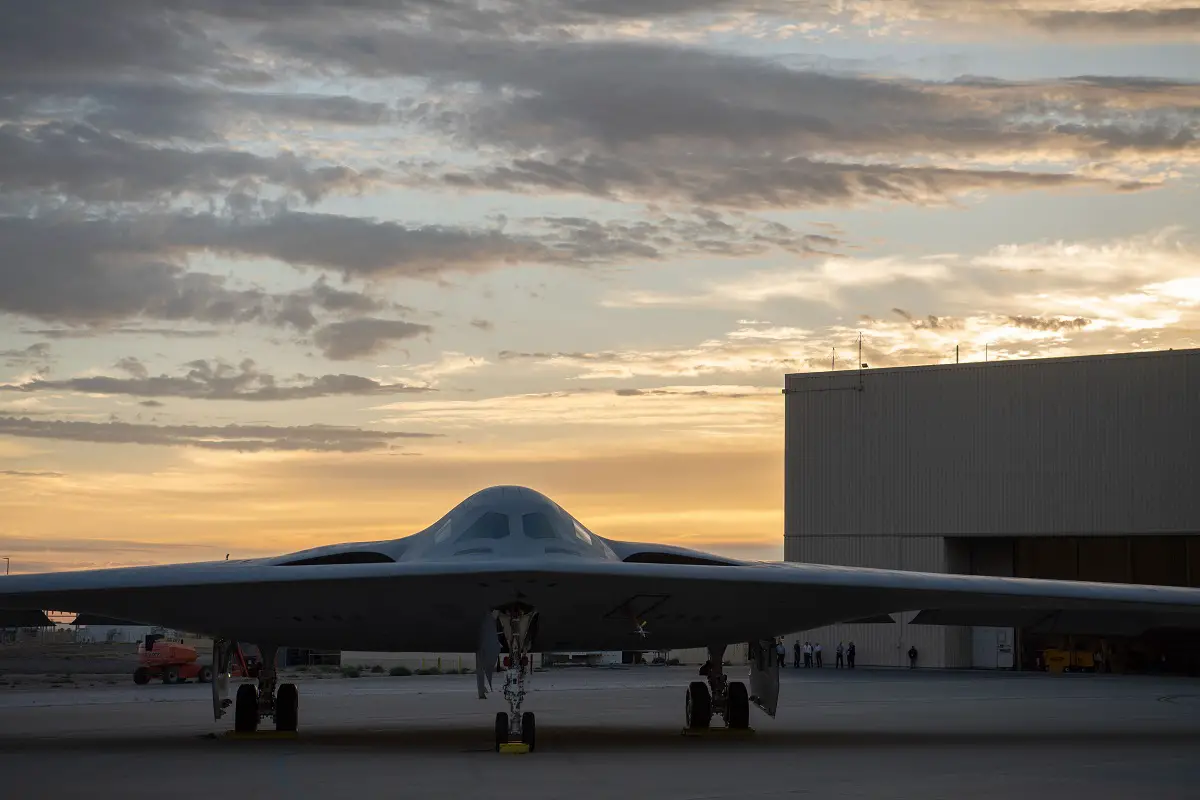At last week’s Air and Space Forces Association’s Air, Space and Cyber Conference, Air Force and DoD leadership discussed the B-21 program in terms of effective program management, production readiness and early integration of sustainment elements as foundational to the effective delivery of operational capability. Additionally, the U.S. Air Force announced Northrop Grumman has commenced engine runs on the B-21, a significant milestone in the aircraft’s ground test program. While the B-21 first flight will be a data driven event closely monitored by Northrop Grumman and the U.S. Air Force, key programmatic decisions and strategies are placing the program in a positive position moving forward.
“Given Northrop Grumman’s focus on sustainment early in development, the B-21 is much further along on tech data than we would typically expect on a new program at this point. Development of content such as product support, materiel readiness and training is well underway, giving B-21 a head start on support and sustainment operations ahead of delivery to the user community,” said Doug Young, vice president and division general manager, Northrop Grumman Aeronautics Systems.
“The B-21 program is a prime example of how industry can be a capable partner in providing systems that meet critical needs, efficiently. The first test aircraft was built by our technicians using factory production processes; we’re doing that learning and refining in parallel, which will enable us to get to stable and steady production more quickly,” said Tom Jones, sector president for Northrop Grumman Aeronautics Systems.

One key to the overall program strategy established from the outset was to build a production representative first test article. Rather than a prototype, the first B-21 Raider test article has been built with rigorous production processes on the same manufacturing line with equal tooling that will be utilized to continue shaping the B-21 fleet. Unique to aircraft development programs, the first B-21 test article is equipped with its primary mission systems such as communications and navigation systems. The decision to build a highly representative test vehicle will allow Northrop Grumman and the Air Force to conduct a robust flight test campaign and pull discovery left, in alignment with the program’s execution strategy from the outset.
Developed with a digital thread over the program life cycle, the B-21 Raider utilizes the latest in digital tools and capabilities from design to development and test, and ultimately in sustainment. This focus on the B-21 digital ecosystem coupled with investment in labs and testing facilities has allowed the Northrop Grumman team to digitally model B-21 performance prior to physical movements or needs. As the B-21 undergoes various ground tests, digital models are outperforming industry standards with twice the accuracy. This is evident in initial testing with the first test article performing as expected; testing of the engines, weapons bay doors, landing gear and control services demonstrated expected results and indicates the effectiveness and value of digital modeling.
The B-21 Raider is the world’s first sixth-generation aircraft, backed by decades of expertise in stealth technology and optimized for the high-end threat environment. With its open architecture and application of cloud technology, the B-21 Raider is built for seamless incorporation of software upgrades and new capabilities. Northrop Grumman has already demonstrated the B-21 will be capable of integrating third party technology, supporting the program’s utmost focus on modernization and need to keep the weapon system on the leading edge of future threats. The program’s novel approach to program execution coupled with effective application of digital technologies demonstrates a focus on delivering exceptional capability, effectively and efficiently.
















